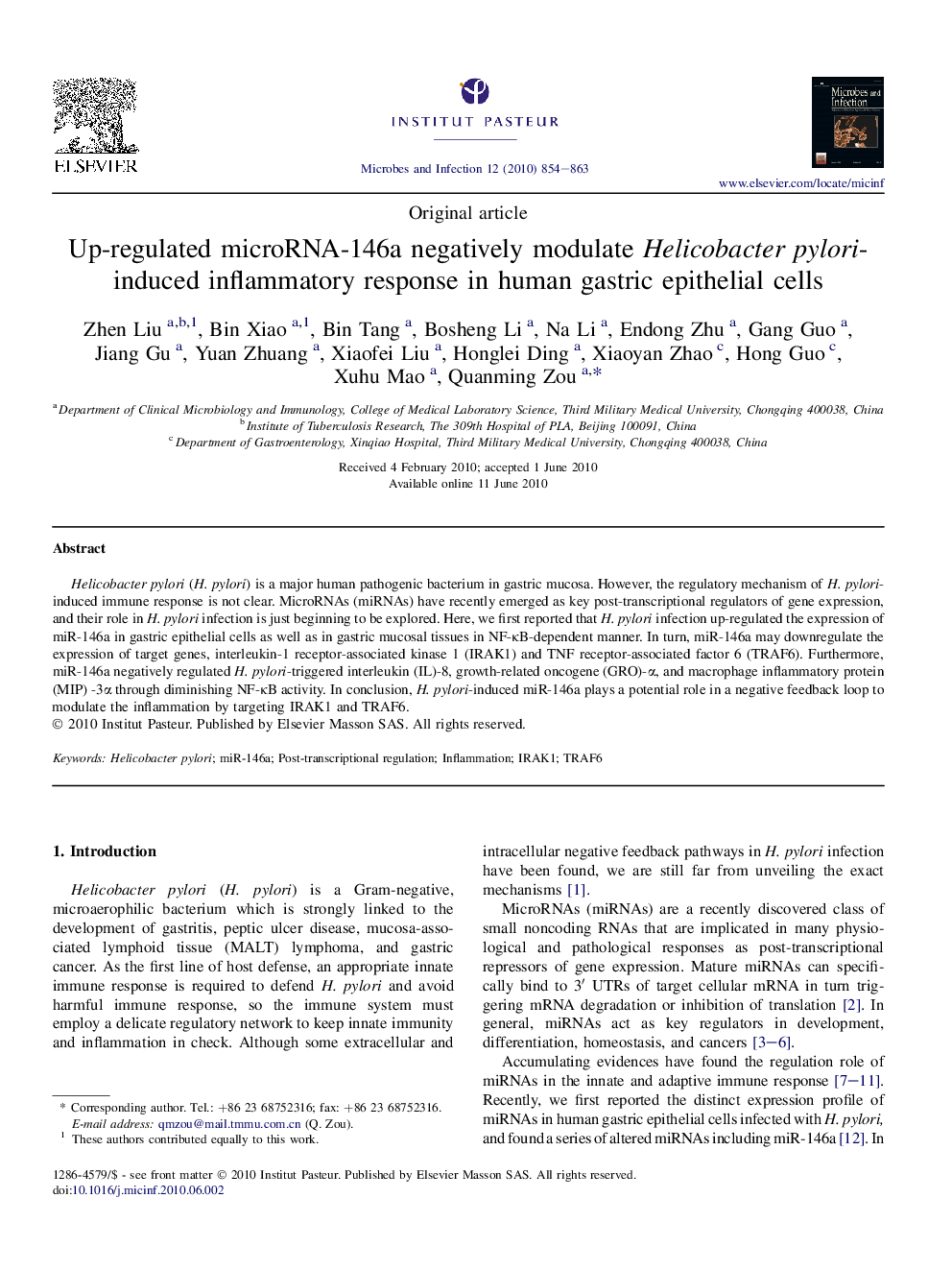| Article ID | Journal | Published Year | Pages | File Type |
|---|---|---|---|---|
| 3414980 | Microbes and Infection | 2010 | 10 Pages |
Helicobacter pylori (H. pylori) is a major human pathogenic bacterium in gastric mucosa. However, the regulatory mechanism of H. pylori-induced immune response is not clear. MicroRNAs (miRNAs) have recently emerged as key post-transcriptional regulators of gene expression, and their role in H. pylori infection is just beginning to be explored. Here, we first reported that H. pylori infection up-regulated the expression of miR-146a in gastric epithelial cells as well as in gastric mucosal tissues in NF-κB-dependent manner. In turn, miR-146a may downregulate the expression of target genes, interleukin-1 receptor-associated kinase 1 (IRAK1) and TNF receptor-associated factor 6 (TRAF6). Furthermore, miR-146a negatively regulated H. pylori-triggered interleukin (IL)-8, growth-related oncogene (GRO)-α, and macrophage inflammatory protein (MIP) -3α through diminishing NF-κB activity. In conclusion, H. pylori-induced miR-146a plays a potential role in a negative feedback loop to modulate the inflammation by targeting IRAK1 and TRAF6.
